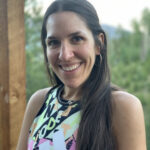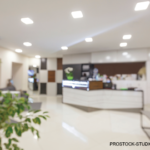 Forging one’s own path after completing medical training can be daunting. As I entered the final six months of my rheumatology fellowship, I was also pregnant with my first child. Having grown comfortable within academic settings, I felt the nerves of trying to find my place outside medical education.
Forging one’s own path after completing medical training can be daunting. As I entered the final six months of my rheumatology fellowship, I was also pregnant with my first child. Having grown comfortable within academic settings, I felt the nerves of trying to find my place outside medical education.
Search for Home
For the best interests of my growing family, I limited my job search to a specific geographic region. Academic centers dominated the ACR’s State-of-the-Art Clinical Symposium job fair, but academic medicine did not offer an option that fit with my practice vision. Opportunities with large hospital systems come off as financially enticing, but also came with many red flags.
I distinctly remember a lucrative offer, but was taken aback by the fine print. As the solo rheumatologist for a large metropolitan health center, the contract required me to have a clinic at point A, unless “deemed elsewhere,” in which case I would have to travel to point B or C within a 50-mile radius. In addition to the 8 a.m.–5 p.m. office hours, Monday through Friday, I would be on call during nights and weekends for all three locations. The CEO of the hospital system advised me that he was unsure there was a need for rheumatology and could not guarantee my income after the first year. Six years later, no one has taken this offer.
Time continued to wind down on my fellowship, and the stress of finding a job, paying off medical school loans and becoming a parent was taking a toll. There were multiple rheumatology offices with solo practitioners in the region, but many were not looking to add a partner. Lack of knowledge and resources made the thought of starting my own practice an impossible and lonely task. I still wanted to collaborate and practice with colleagues.
It was through pharmaceutical representatives and non-rheumatologist physician contacts that I was finally introduced to private practice groups looking to add a physician provider. Offers were narrowed based on my predetermined non-negotiables—location, location, schedule flexibility!—and it was with my current practice that I found a supportive team and a place where I could grow as a rheumatologist while also succeeding in my non-medical roles.
Since I joined, our group has expanded to include four physicians and three physician assistants. Our practice prioritizes caring for our community and serves patients from across the state. We are humbled by our patients who drive over six hours to continue their care and happy to see those who live six minutes away or around the corner. Our practice serves individuals who face barriers accessing academic centers.
I am honored to care for my community and appreciate the autonomy I have from the demands of corporate medicine. This autonomy allows me to be fully present for my patients while embracing my other roles and identities. In June, I proudly completed my first marathon, and I was delighted to have the support of my three children on race day—along with the cheers of my patients the following week of clinic.
The ACR Steps Up
In January 2023, the ACR responded to the need to support independent and small practice providers across the nation. It established the ACR Community Practice Council, and more than 70 practitioners applied for membership.
The Council, led by chair Tien-I Karleen Su, MD, held its inaugural meeting in April during ACR Education Exchange. Its primary goal is to advocate for private practitioners within the ACR, addressing the increasing administrative burdens, regulations and compliance challenges we face. As medicine has become more corporatized, larger hospital systems are continually buying out individual small practices. Private practitioners need to be recognized and supported for their contributions to advancing rheumatology care.
The Council comprises 15 members, with a diverse composition of 50% female and 50% male rheumatologists at various stages of their careers. Each member brings unique challenges and perspectives on achieving work-life balance. We collectively understand that private practice allows us to pursue individualized goals while meeting the needs of our patients and communities.
During our initial meeting, we identified several key issues to address, acknowledging that progress will be gradual. We aim to assist private practices in competing with larger healthcare systems while also addressing physician deficits in underserved areas. We formed three subcommittees to focus on specific areas in our first year:
- Assessing the number of private practice rheumatologists within the ACR;
- Highlighting the experiences of private practitioners to attract more providers exiting fellowship or seeking a career change from corporate and academic medicine; and
- Developing resources on the ACR website to support both newcomers and established practitioners on their private practice journeys.
Many private practitioners have expressed concerns that the ACR does not adequately support them, with resources predominantly directed toward academia. Our goal is to remind private practitioners that we have a place within the ACR and our voices are pivotal to healthcare in America.
In Sum
Joining a private practice can be overwhelming, but physicians are adept at learning. We aspire to assist the ACR in educating providers not only to be thriving practitioners, but also successful entrepreneurs in an increasingly volatile healthcare landscape. Our long-term vision is to equip providers with the necessary tools to do both in all geographic regions, ensuring the continued availability of quality rheumatology care for our patients.
 Dana Elise Rockwell, DO, is an adult rheumatologist practicing in Rochester Hills, Mich., and a clinical faculty member at Michigan State University College of Osteopathic Medicine. She completed her rheumatology fellowship at University Hospitals Cleveland Medical Center.
Dana Elise Rockwell, DO, is an adult rheumatologist practicing in Rochester Hills, Mich., and a clinical faculty member at Michigan State University College of Osteopathic Medicine. She completed her rheumatology fellowship at University Hospitals Cleveland Medical Center.



